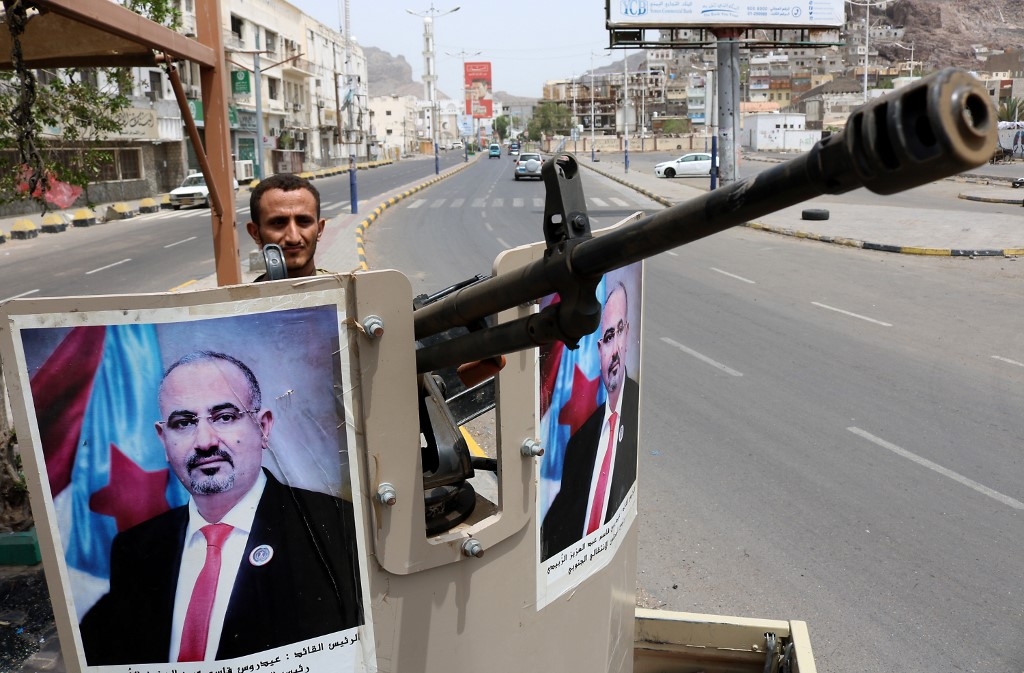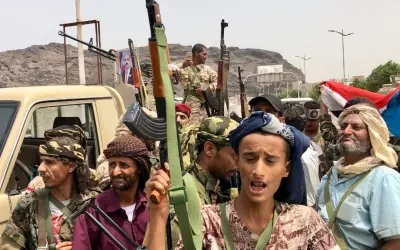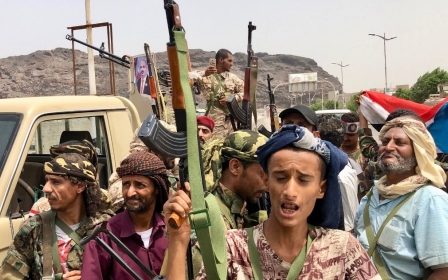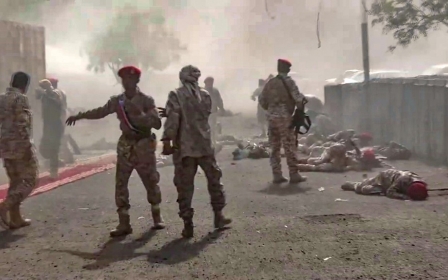Abu Dhabi crown prince visits Saudi Arabia as Yemen separatists say ready for talks

Mohammed bin Zayed, crown prince of Abu Dhabi, and Saudi Crown Prince Mohammed bin Salman met in Mecca on Monday, a day after the Saudi-led coalition bombed forces backed by its own partner the UAE in southern Yemen.
Bin Zayed called on the Yemeni warring parties to "engage positively" in the dialogue process proposed by Saudi Arabia in order to reach a consensus that is in "the best interest" of their country.
The coalition launched air strikes against UAE-backed southern separatists in Aden on Sunday after they seized the presidential palace and other sites, fracturing an alliance that had been focused on battling Houthi rebels.
The UAE joined the Saudi-led coalition when it first intervened in Yemen in 2015 to reinstate the internationally recognised government of President Abd Rabbuh Mansour Hadi, which was ousted by the rebel Houthi movement in 2014.
But last month, Emirati officials announced they were drawing down their forces in the country, seeking to hand more responsibility on the ground to its proxies.
New MEE newsletter: Jerusalem Dispatch
Sign up to get the latest insights and analysis on Israel-Palestine, alongside Turkey Unpacked and other MEE newsletters
Over the past week, tensions have simmered in southern Yemen, where the UAE has backed the Southern Transitional Council (STC), a separatist movement, and has armed and trained 90,000 fighters.
Fighting began on Wednesday after the UAE-backed Security Belt Forces (SBF) - which is the armed wing of the STC - accused the Islamist pro-Hadi al-Islah party of complicity in a missile attack on a military parade in Aden, one of three separate attacks earlier this month that targeted southern forces.
The clashes left at least 40 killed and 260 injured, according to the United Nations' humanitarian coordinator for the country.
Then on Saturday, the STC seized control of the hilltop palace and army camps in the southern city, with the Saudi-led coalition bombing in response on Sunday.
The Yemeni government has accused the STC and the UAE of staging a “coup” against it.
Late on Sunday, Aidarus al-Zubaidi, the leader of the STC, said he and his forces were ready to work with the Saudi-led coalition and start a ceasefire.
He said also that loyalist forces had a plan to assassinate STC leaders and undermine the separatist “cause” and therefore his campaign was in “self-defence”.
The minister of interior and deputy head of Hadi’s government Ahmed al-Maysari conceded the defeat in a YouTube video posted on Sunday, saying the coup attempt has succeeded to “undermine the remnants of the Yemeni state’s sovereignty".
Maysari accused leaders of the STC of “robbing” properties owned by government leaders in Aden during the onslaught.
In a seemingly sarcastic note, he congratulated the UAE on the victory and promised a “comeback” for his troops.
“We congratulate our brothers in the UAE on their outstanding victory against us, but it will not be our last battle.”
He said that members of his government were en route to Riyadh, where Hadi is currently based.
Residents who spoke to Reuters news agency on Sunday said there was relative calm in the city but that they were worried about the uncertainty of the situation. They said power and water supplies had been restored, but could be disrupted again if the crisis continues.
Local media quoted an official at Aden's airport as saying flights had resumed on Sunday.
The conflict complicates UN efforts to end the four-year war that has killed tens of thousands and left millions in the poorest Arabian Peninsula nation on the brink of famine.
Middle East Eye delivers independent and unrivalled coverage and analysis of the Middle East, North Africa and beyond. To learn more about republishing this content and the associated fees, please fill out this form. More about MEE can be found here.





